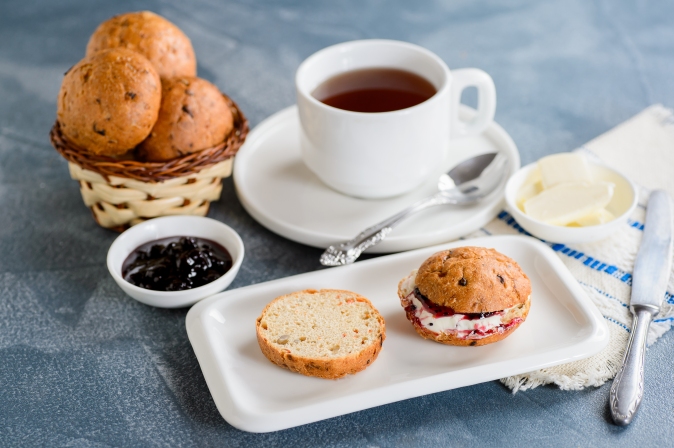
Sameea Jonnud, Aldershot
“Tea is one of the main stays of civilisation in this country” – George Orwell
After the recent Westminster attack, doomsayers told the world that London and her inhabitants were cowed; Londoners, of course, were derisive of this as was shown by the many displays of solidarity. One of my favourites was someone saying that the Blitz didn’t destroy the spirit of Londoners and neither would this event; the statement was accompanied by an old black and white photograph of a woman sitting on top of a pile of rubble in a residential area, drinking a cup of tea.
Earlier this month the EDL held a rally in Birmingham; the city’s Central mosque countered this by hosting a “best of British” tea party with union flag bunting and an open invitation. Local MP Liam Byrne addressing guests said: “Getting together as friends, getting together as neighbours, breaking a bit of Victoria sponge and having a cup of tea. That is a potent, powerful message that we will send to those who seek to divide us.”
Whenever there is a time of crisis, when someone visits or when you just need a break, a cup of tea makes an appearance. How many times have we heard the soothing words ‘I’ll put the kettle on’ when comfort is needed? Tea has always been important to the British; the Boston Tea Party has ensured the word ‘Tea’ is always associated with triggering the American war of Independence.
Here in Britain tea becomes a luxury and treat when it is taken as ‘Afternoon Tea’ especially when the teapot is accompanied by cucumber sandwiches, freshly baked scones, strawberry jam and clotted cream; all the better if you take tea in a posh hotel with cups and saucers with a selection of exotic teas to choose from! When The Queen celebrated her jubilee we had Anglophile guests from Canada so we took the opportunity of indulging in Afternoon Tea at home.
While tea is often seen as a very British custom it of course originates not here but in Asia, with China and the Indian sub-continent being great tea producing areas. On a visit to Pakistan many years ago we would have tea with different relatives every day as it was the only way to see everybody in the short time we were there. I immediately noticed that as well as tea and biscuits there would be a spread of savoury dishes, often fried samosas and pakoras, barbecued kebabs and fruit chaat – a fruit salad but with chickpeas, salt and spices. I was even astounded to be served boiled eggs with tea which, my mother informed me, was a tradition in Pakistan.
One big difference in traditions I found was that rather than brewing tea leaves in a pot for a few minutes then pouring into a cup with a splash of milk, the tea in Pakistan was often simmered in equal quantities of milk and water with some crushed cardamom added for flavour leaving a rich, aromatic drink. When at home I make tea in both ways depending on the tastes of the drinker; just making tea brings calm and a civilised feeling to the most stressful day.
The tradition of tea with a large spread of food is a nice custom we use regularly, at family gatherings as well as at social events. The Ahmadiyya Muslim Women’s Association regularly holds coffee (or tea) mornings, fundraising sales and interfaith events where people get to know each other in a relaxed atmosphere – something so important in these divisive times. So much common ground can be found among diverse people when chatting over a cup of tea, a samosa and slice of cake; if only world leaders would use this method the world might be a more peaceful place.
As the photograph of the woman in the Blitz showed, when the world is collapsing around you there is still tea to turn to. Whether you like your tea leaves brewed in a teapot and served in a cup and saucer or simmered in a pan with milk and cardamom, the ritual of drinking tea is a comforting, civilising act which serves to bring people together. The additional elements whether they be cake and sandwiches or pakoras and fruit chaat are enjoyable regardless of the origin of the tea ritual.
Having said all that and as much as I love to be part of the ‘tea’ ritual, I have to confess – I don’t actually drink tea and never have! However, I’ve found the tea ritual doesn’t actually need tea and can be enjoyed just as much with a coffee, hot cocoa or a fruity herbal infusion; after all the important elements are the warmth, comfort and relaxation which are possible with whichever hot drink you choose.
I think it’s time to put the kettle on and get brewing!

Recent Comments